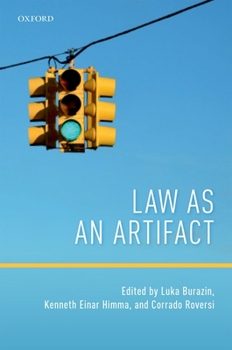Law as an Artifact
This volume assembles leading scholars from both the continental and analytic schools to examine how their respective theoretical positions relate to the artifactual nature of law. It offers a complete analysis of what is ontologically entailed by the claim that law - including legal systems, legal norms, and legal institutions - is an artifact, and what consequences, if any, this claim has for philosophical accounts of law. Examining the artifactual nature of law draws attention to the role that intention, function, and action play in the ontological structure of law, and how these attributes interact with rules. It puts the role of author and authorship at the centre of its analysis of legal ontology, and widens the scope that functional analysis can legitimately have in legal theory, emphasising how the content of law depends on how it is used. Furthermore, the appeal to artifacts brings to the fore questions about the significance of concepts for the existence of law, and makes available new tools for legal interpretation. The notion of artifactuality offers a starting point from which to approach the basic dilemma of whether it is meaningful to search for essential, necessary, and sufficient features of law, a question that in current legal theory is put when deciding what kind of enterprise legal theory is from a methodological point of view, namely whether it is descriptive or prescriptive. This volume unearths insights and observations of value to all those looking to deepen their understanding of how the law is understood and experienced.
Format:Hardcover
Language:English
ISBN:0198821972
ISBN13:9780198821977
Release Date:October 2018
Publisher:Oxford University Press, USA
Length:304 Pages
Weight:1.35 lbs.
Dimensions:1.0" x 6.1" x 9.3"
Related Subjects
LawCustomer Reviews
0 rating





